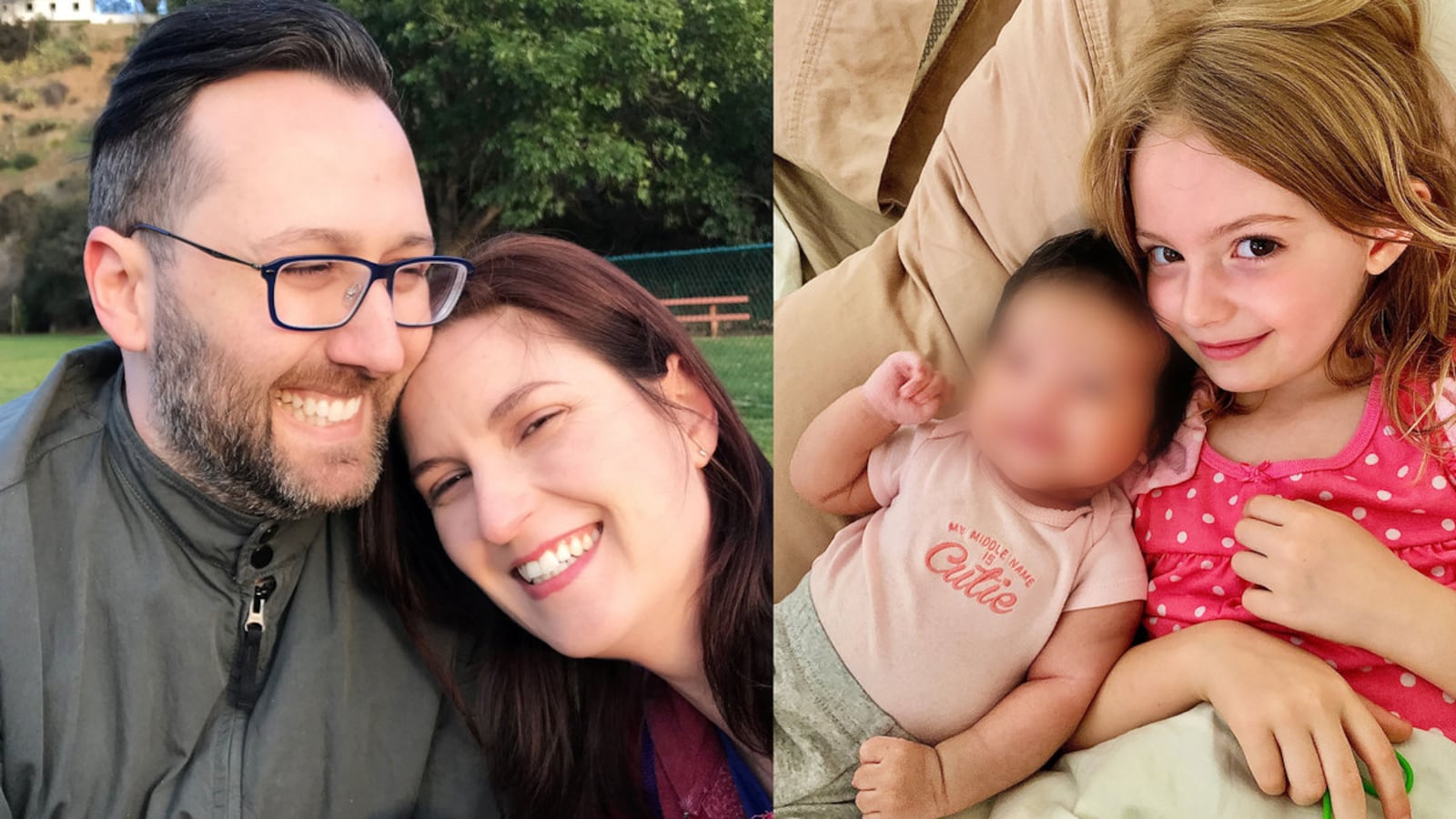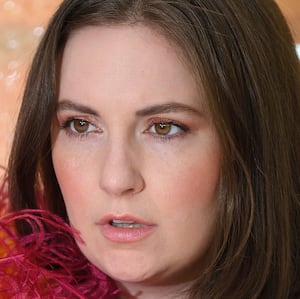When Daphna Cardinale gave birth to her second child two years ago, her husband, Alexander, took a step back in shock. The baby—which the Los Angeles couple had conceived via in vitro fertilization nine months earlier—looked nothing like its parents, according to a lawsuit filed Monday. The couple struggled for months with what to do, oscillating between denial and dark humor to mask their confusion. Finally, after seven weeks of limbo, they decided to take a DNA test. The result was what they had feared all along: The child Daphna had carried for nine months, whom she had cuddled and breastfed for two, whom their five-year-old daughter saw as a sister, was not related to them at all.
The Cardinales are the latest alleged victims of an IVF mixup, an increasingly common and distinctly 21st-century problem in which the embryos of two IVF patients are swapped, resulting in one or both couples giving birth to a stranger’s baby. The couple is now suing their fertility center, the California Center for Reproductive Health, in Los Angeles superior court, alleging breach of contract and medical malpractice, among other things.
At a press conference Monday, Daphna said she was “devastated” that she had been “robbed of the ability to carry my own child.”
“The heartbreak and confusion can’t be understated,” she said through tears. “Our memories of childbirth will always be tainted by the sick reality that our biological child was given to someone else, and the baby that I fought to bring into this world was not mine to keep.”
According to the suit, Daphna and Alexander were married in 2006 and spoke often about having two children. Their first daughter was conceived naturally and born in April 2014. When they tried again two years later, they could not conceive naturally and began looking into IVF. They found Dr. Eliran Mor at the CCRH, a nationally renowned clinic that bills itself as “one of the top fertility clinics in the U.S.,” and started their first round of IVF in 2018. (Both the CCRH and its lab, In VitroTech, declined to comment for this article.)
The IVF process was long, costly, and arduous, requiring multiple visits a week to the fertility center and at-home hormone injections five times per day, according to the suit. Daphna suffered from bloating and mood swings, which were compounded by a failed implantation in October of that year. But the couple tried again, and in January 2019 successfully implanted another embryo.

It was during the baby’s birth in September that the Cardinales first noticed something was wrong. The infant’s complexion and hair were much darker than the couple’s own, and that of their first daughter. According to the suit, the difference between the newborn’s appearance and its purported parents was “so jarring” that Alexander “actually took several steps away from the birthing table, backing up against the wall.”
The next several weeks were a fraught time for the couple, whose family and friends began remarking on the differences between the child and her parents. Alexander resorted to making jokes about how the baby might not be his, while Daphna attempted to convince herself that nothing was wrong. Adding to the confusion was a bizarre call from Dr. Mor’s office several weeks after the birth, asking for photos of the child. “Alexander was so upset that he was staying up at night, staring at their newborn child, wondering if she was truly theirs,” the suit states.
Eventually, the couple decided to take an at-home DNA test, which confirmed that the baby was not genetically related to them. They hired an attorney and reached out to CCRH, which arranged for additional genetic testing. On Christmas Day 2019, the fertility center confirmed that the baby was indeed the biological offspring of another couple—and that their own biological daughter had been born to that same couple just a few weeks later.
Daphna said Monday that she was “overwhelmed by feelings of fear, betrayal, anger, and heartbreak” upon learning the news.
“We missed an entire year of our daughter's life,” she said. “We never saw our baby’s entrance into the world or cuddled her in her first seconds of life. These are moments that parents are supposed to be able to treasure for the rest of their lives.”
The Cardinales are not the first couple to have their embryo allegedly implanted in the wrong mother. The latest high-profile incident was in 2019, when California residents Anni and Ashot Manukyan learned their baby had been born to another fertility center patient 3,000 miles away in New York. The Manukyans had to fight both the fertility clinic and the birth mother, who allegedly wanted to keep custody of the child. (The judge ruled in favor of the genetic parents.) A similar case occurred in 1998, when a white woman named Donna Fasano gave birth to two twins, one Black and one white. This time, both parents sued for custody of the child; again, the judge sided with the genetic parents.
It is also not the first time In VitroTech labs has been named in a lawsuit alleging improper handling of genetic material. In 2016, a 40-year-old woman named Sarah Robertson sued the company for allegedly losing the preserved sperm of her husband, who had died 10 years earlier of complications related to Marfan’s Syndrome. Robertson said she had preserved her husband’s sperm in hopes of having his children after his death, but that when she reached out about using it, the lab informed her that it could not be located. (The case was eventually dismissed because judges ruled Robertson was “not legally entitled to use her husband's sperm for posthumous conception.”)
After learning of their own alleged mixup in December 2019, the Cardinales arranged to meet with the couple who had given birth to their biological daughter. They continued meeting weekly for brief exchanges of offspring, until January 16, when they decided to swap them for good. (The other couple also plans to file suit against the fertility center later this week but will remain anonymous, an attorney for the Cardinales said at the press conference.)
The Cardinales said the situation has been the hardest on their older daughter, who was 5 years old at the time the baby was born and bonded with her like she was her own sister. At the press conference, Daphna teared up explaining how her daughter had grown more distant since the mix-up.

“Once this happened, because she’s so little, I don't even know how to describe it, it’s like she lost trust in us,” she said. “She lost that trust that she was gonna be taken care of. If we can mess up something so big like this, how could she possibly be safe?”
The two couples have remained in touch since the hand-off, largely for the benefit of their older children. They formed a pod in the early days of the pandemic so that their families could spend time together, and have met up for every major holiday and birthday since then. “We’ve done our best to forge a larger family,” Daphna said.
The couple says they have managed to bond with their biological daughter, who is now 2 years old, but are still seeking accountability for the pain and suffering the mix-up caused.
“I hope that no one ever has to suffer what my family has been through and I hope that CCRH and Dr. Mor see this,” Daphna said. “I hope they understand the damage that they caused. And most importantly, they need to take responsibility before any other families are hurt.”






